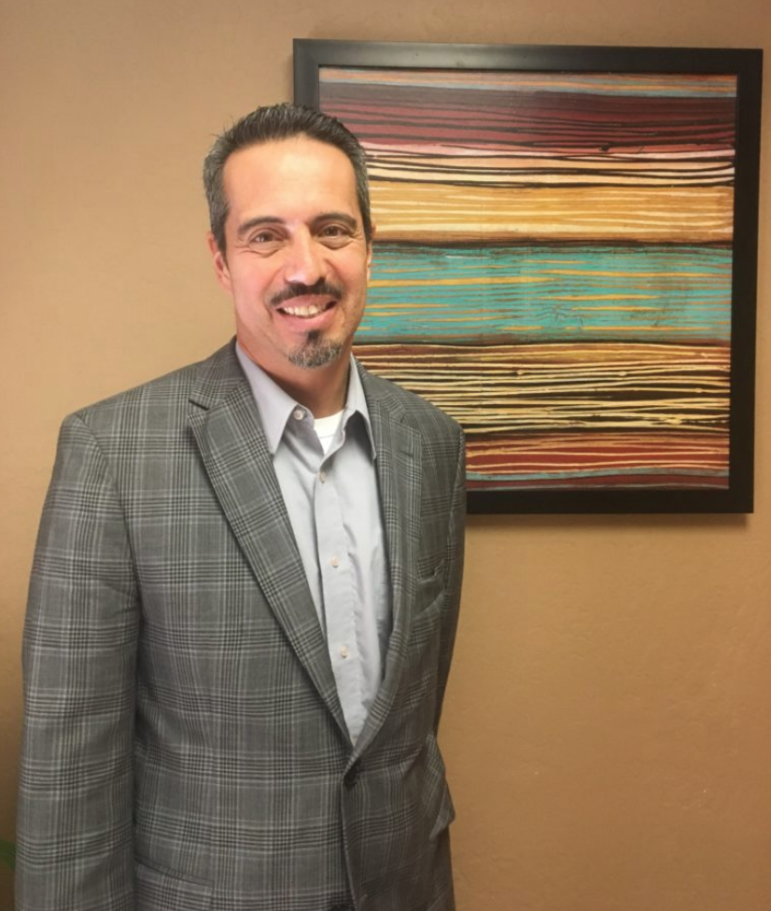
Lawmakers and prosecutors appear as far apart as ever on reform proposals for New Mexico’s probation and parole systems, despite Gov. Michelle Lujan Grisham admonishing them to find common ground in April.
That’s when the first-term Democratic governor vetoed a reform bill — with significant consternation — that would have shifted the systems away from incarceration as a first resort and likely seen significantly fewer people returning to prison and jail.
The disagreements center largely on who should be locked back up for violating their probation and who should not, and a change that would have required the Parole Board to issue detailed, written findings when it denies someone’s release after 30 years behind bars.
If changes favored by legislators become law, potentially thousands of people in New Mexico who are currently locked up would remain under state supervision, but not behind bars. It could burden the justice system, creating the need for new jobs and monitoring mechanisms, but also save the public millions in lock-up costs, legislative analysts say.
Lawmakers have pushed the changes because they say a shift toward rehabilitation and providing services to lower-level offenders can help them turn their lives around and stay out of the justice system.
“We’re looking at a total cultural shift in our criminal justice system,” state Rep. Antonio “Moe” Maestas, D-Albuquerque, and a reform advocate, told NMID this week. “Five to 10 years from now, new (probation officers) will be saying: ‘What? You used to send people back to jail or prison for that?’”
But the New Mexico District Attorneys Association and Attorney General Hector Balderas remain unconvinced. In early July, they circulated a marked up version of the vetoed bill that for the first time detailed the ways in which they oppose proposals from lawmakers to send fewer people back to prison on low-level probation violations and remake portions of the state’s parole system.
Their opposition to lawmakers’ ideas is substantial.

Dianna Luce, district attorney for Eddy, Chaves and Lea counties and president of the New Mexico District Attorneys Association, told NMID the reforms sought by lawmakers had a consistent theme.
“It’s just a lack of accountability for someone who has committed a crime and a lack of consideration for victims’ rights,” Luce said. Speaking for herself and not the association, she added: “If there’s going to be no accountability, why are we placing them on probation in the first place?”
The rift dates to March.
That’s when both chambers of the Legislature passed House Bill 564 by wide margins. The sweeping probation and parole reform measures appeared headed for the statute books, then all 14 of the state’s district attorneys and Balderas signed onto a letter urging Lujan Grisham to break out the veto pen.
“Plainly stated, this bill poses a significant public safety risk if signed into law,” the letter read, in part.
Weeks later, Lujan Grisham reluctantly vetoed the legislation, even while pointing out that several states have made changes to their probation and parole systems similar to those sought in HB564. Those reforms “have improved public safety, reduced recidivism rates, and decreased taxpayer costs by prioritizing limited prison space for dangerous criminals.” She noted that a similar shift in probation and parole by North Carolina in 2011 has led to the closing of 10 prisons and a prison population reduction of 3,400 people.
The governor made clear that a new reform bill should be ready for next year’s session. By then, she expected the bill sponsors — Republican Sen. Sander Rue, Democratic Sen. Richard Martinez and Democratic representatives Maestas and Gail Chasey, both attorneys — and prosecutors to have compromised.
That has not happened.
The gulf between legislators’ and prosecutors’ visions for probation and parole in New Mexico boiled over during a three-day meeting of the Legislature’s interim Courts, Corrections and Justice Committee the second week of July, several attendants have told NMID.
The prosecutors’ draft changes to HB564 were at the center of the sometimes testy exchanges.
They are pushing back on several proposals from lawmakers, including shifts in who should be rearrested for violating probation and whether judges should keep ultimate authority over those decisions in all cases.
There are about 7,300 inmates in New Mexico’s prisons and about 17,000 people on probation and parole, according to an analysis from the Legislative Finance Committee. That does not include people locked up in the state’s county and city jails pending trial, and the figures do not make clear how many of those locked up are incarcerated for probation violations.
But people returning to prison made up 41% of all new prison admissions in fiscal year 2017, according to the New Mexico Sentencing Commission. That fiscal year, the state Corrections Department reported a 50% recidivism rate. That marks a 5 point jump since fiscal year 2010 when recidivism was 45%, which represents $6 million a year in additional costs.
Luce conceded that “substantive” differences remain between her group’s proposed version of HB564 and the original bill.
“Some of sweeping changes they made, we just oppose. But we opened a dialogue, and communication is obviously very important,” she said. “We think this bill may eventually pass and be signed, and we want our voices heard.”
And there may yet be some common ground.
Maestas, one of the bill sponsors, said he’s considering asking his colleagues to drop the changes to parole for people serving 30-years-to-life sentences.
He said the prosecutors mischaracterized those reforms, “spreading disinformation in the victim community” with their letter to Lujan Grisham in March about who would be released from prison had the bill been signed.

“It was unconscionable,” Maestas said. “But in the end, those were the changes that made the prosecutors lose their mind, not the shift on the probation side. So, I would rather go to the 50-yard line with everybody on board than score a touchdown with the DAs and the AG sniveling. Do I want to create handcuffs over intellectual honesty or pass a bill? I’d rather pass a bill.”
The differences over how and whether to reform the probation system could also prove fatal to an agreement, he said. But in the end, it’s up to lawmakers what goes in the bill and whether it passes.
If it does, Lujan Grisham will have another decision to make.
Hours after she vetoed HB564 in April, her spokesman told NMID that changes sought through the bill “will be aggressively and expeditiously addressed in the interim with the DAs and the attorney general. The governor has that full expectation.”
Matthew Garcia, Lujan Grisham’s general counsel, said he’s working to set up a meeting with himself, the prosecutors and the governor.
“There are significant disagreements on substantive issues,” he said, adding that he hadn’t carefully read the DAs’ mark-up of HB564. “For now we want to focus on whether there is a path forward. … We want a bill that protects the public and is in line with the governor’s commitment to be smart and tough on crime.”
Garcia said there could be subsequent meetings that would bring lawmakers and prosecutors to the table as next year’s session draws closer.